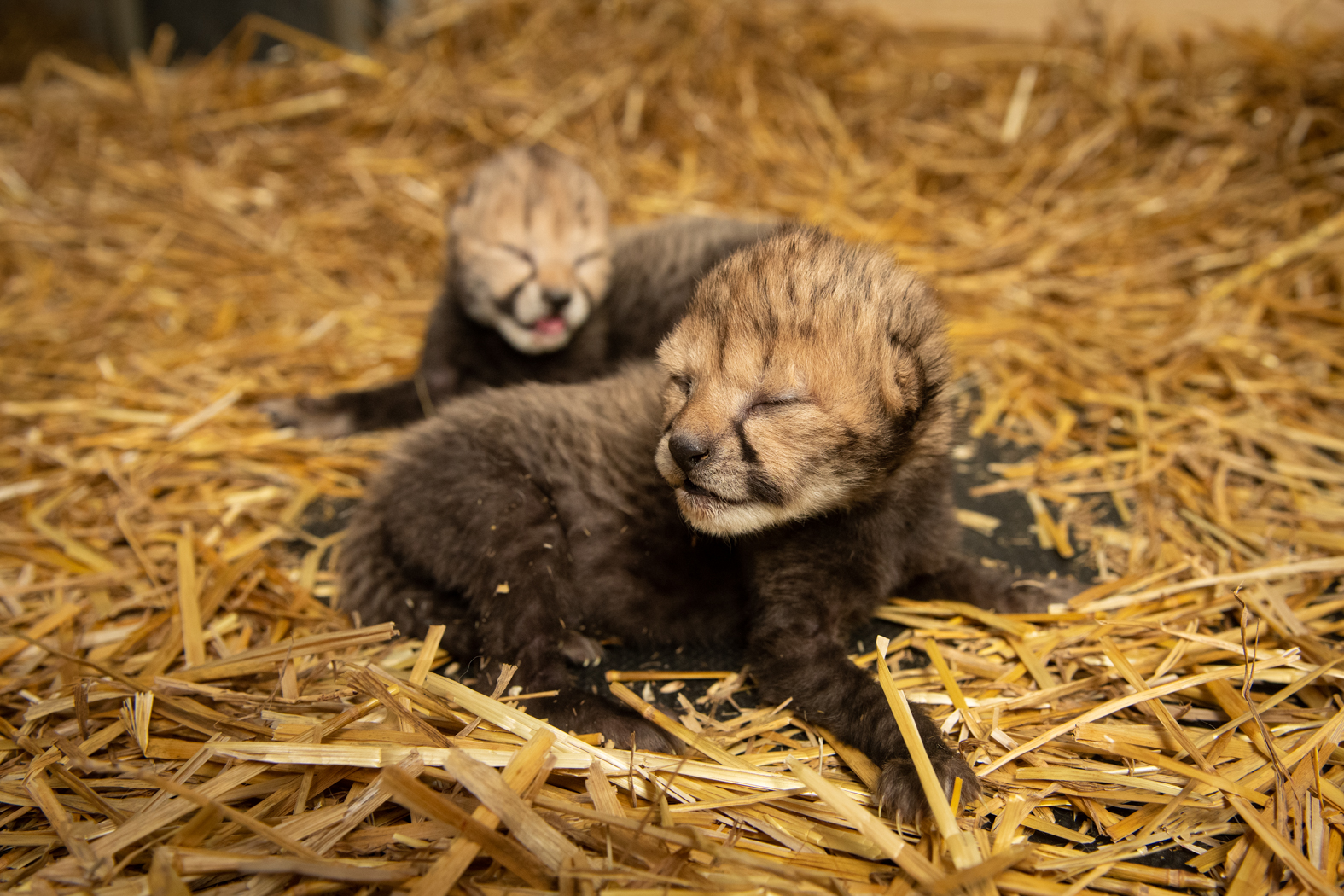2 cheetah cubs born via IVF for 1st time at Columbus Zoo
The cubs were born to a surrogate mother.
Two cheetah cubs have been born via in vitro fertilization to a surrogate mother for the first time ever at the Columbus Zoo.
The cubs, one male and one female, and their surrogate mother, Izzy, are doing well after the birth on Feb. 19, the zoo's vice president of animal health, Dr. Randy Junge, and president and CEO, Tom Stalf, told ABC News.
Izzy, a first-time mother, is providing "great care" to the cubs, according to the zoo. They are being monitored closely through a remote camera 24 hours a day, Stalf said.
While the cubs' biological mother is 9-year-old Kibibi, they were born via surrogate because cheetahs' ability to reproduce after the age of 8 declines significantly.
"The assumption was, as an older female, she would be less likely to carry a pregnancy to completion," Junge said.
Kibibi was chosen as their biological mother because her bloodline is "already well represented in the genetic registry, according to the zoo."
The cubs are "doing great" and continuing to gain weight, Stalf said.
Currently, the male cub weighs 480 grams, roughly 1 pound, and the female weighs 350 grams, according to the zoo. They have not yet been named.
Their eyes, ears, mouth and heartbeat were checked during a brief exam on Monday, Junge said, adding that "everything looks good."

It will be a few months before they will be displayed at the zoo's cheetah exhibit.
The cubs' birth was a result of careful planning between the Columbus Zoo, the Smithsonian’s National Zoo and Conservation Biology Institute and the Fossil Rim Wildlife Center in Glen Rose, Texas.
The IVF procedure began in November when Kibibi and her sister, Bella, first began receiving hormone injections to stimulate follicle development. Once the eggs were extracted, they were fertilized using thawed semen from the cubs' father, a 3-year-old named Slash from Fossil Rim Wildlife Center, and an ultrasound in December revealed that Izzy was pregnant with two fetuses.
The procedure had been attempted twice before but was not successful until the third try, Junge said.
Izzy and Kibibi are two of the zoo's "ambassador cheetahs" and have formed "extremely close bonds" with their caretakers, allowing them to perform ultrasounds, x-rays and other medical procedures when needed, according to the zoo.
Cheetahs are listed as vulnerable on the International Union for Conservation of Nature's Red List of Threatened Species. There are only about 7,000 cheetahs left in the world.
Jason Ahistus, Fossil Rim Wildlife Center Carnivore Curator, described the accomplishment as a "big win for the cheetah."
"It really opens the door to many new opportunities that can help the global cheetah population," Ahistus said in a statement.




